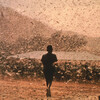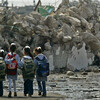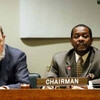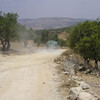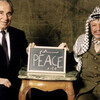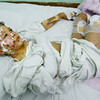
Third Committee adopts resolution on Palestinian children
17 November 2004
Returning to its consideration of promotion and protection of the rights of the child, the Third Committee took up the draft on the Situation of and Assistance to Palestinian Children by which it would have the General Assembly express deep concern about the negative consequences, including psychological consequences, of the Israeli military actions for the present and future well-being of Palestinian children. The text has the Assembly demand that Israel respect relevant provisions of the Convention on the Rights of the Child and comply fully with the provisions of the Fourth Geneva Convention. It also calls upon the international community to provide urgently needed assistance. Read more about Third Committee adopts resolution on Palestinian children
